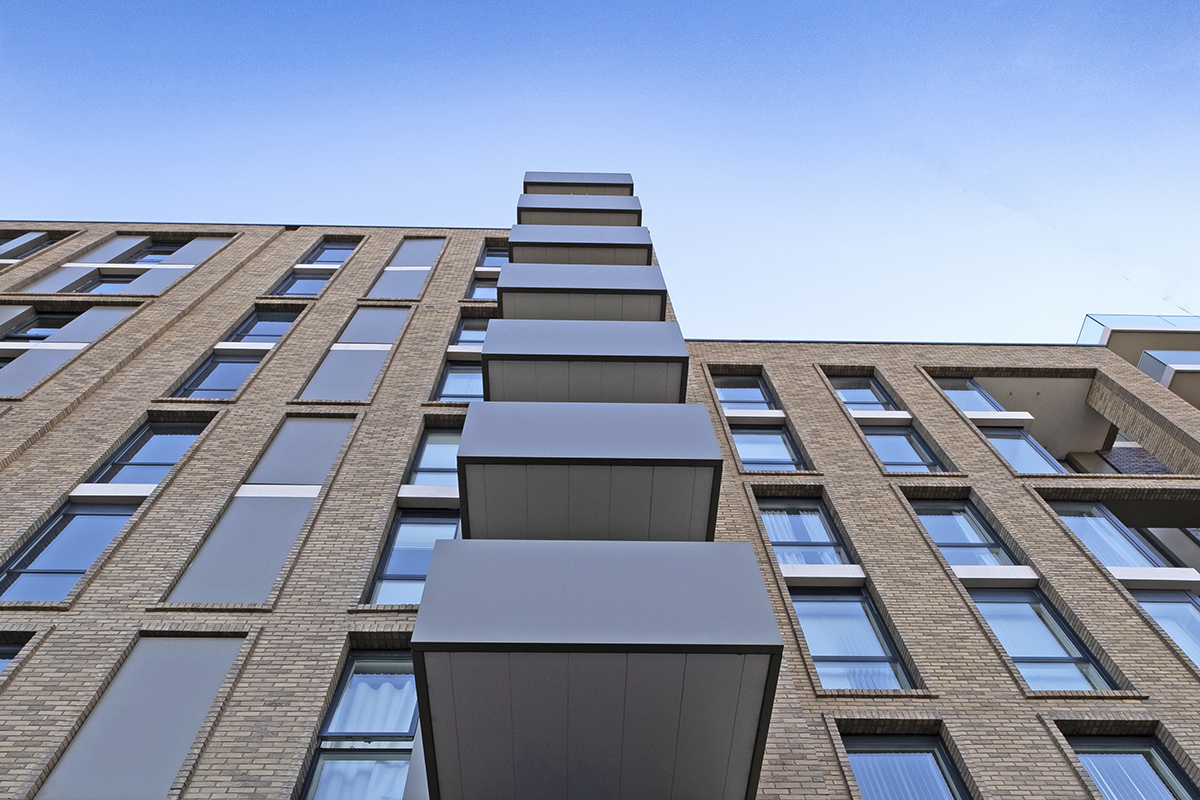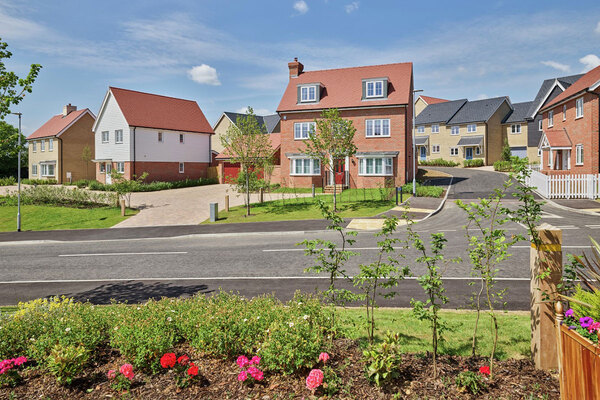You are viewing 1 of your 1 free articles
How will changes to leasehold affect registered providers?
The Leasehold and Freehold Reform Bill recently passed its second reading in the House of Lords, and concern is growing that it might be watered down to the point where it represents very little reform at all. Hannah Fearn reports
There are around five million leaseholders in the UK, and many of them are living in properties where the freeholder is a social housing provider – whether as owners of former Right to Buy council flats, or shared owners in mixed-use blocks.
The 50 largest housing associations own more than 100,000 leasehold titles, linked to approximately 500,000 leasehold owners. That number has grown rapidly in recent years as shared ownership has cross-subsidised social housebuilding.
Amid the concern about the Leasehold and Freehold Reform Bill being weakened, Labour has been submitting its own amendments to the legislation in its current form.
At the same time, some shadow ministers have mooted bringing forward a new bill altogether if Labour forms the next government, which polls suggest is increasingly likely.
The Liberal Democrats are committed to abolishing residential leaseholds and capping ground rents to a nominal fee, as is the Green Party.
Inside Housing has taken a look at some of the recent back and forth between the parties and at how the changes to leasehold law could affect registered providers.
What changes have been made to the government’s bill?
Initially promised to end leasehold for all new developments, the bill in fact only prevents the development of new leasehold homes. New flats can still be built and sold under a leasehold arrangement even if the legislation passes.
The bill scraps ground rent and makes it easier and cheaper for leaseholders to extend their leases. However, a Labour amendment to the bill banning the practice of forfeiture, where a home can be removed from a leaseholder due to a small outstanding ground rent or service charge debt, has not been accepted by the government – partly to ease its passage through the House of Lords.
At the same time, the Labour Party is toughening up its proposals on leasehold. It had pledged to scrap the tenure entirely and do so within the first 100 days in office. But reports last week suggest it has dropped this promise as insiders believe they need more time after the Tories watered down their own promises.
What about shared ownership?
Very little will change under the current bill in terms of management of shared ownership leasehold housing stock, which has its own category written into the law to protect it. However a recent government amendment to the draft legislation does affect how shared ownership lease extensions would be handled.
According to Giles Peaker, a housing lawyer at Anthony Gold Solicitors, the proposal states that a lease extension on a shared ownership lease where less than 100% is owned by the tenant would reduce the tenant’s ground rent share to a peppercorn payment, which would make extensions cheaper. “It would certainly impact housing associations in terms of ongoing ground rent,” he says.
However there have been numerous reports over the past week that this cap on ground rent is being challenged by the Treasury and the prime minister, following lobbying from pension funds investing in the ground rent market.
A consultation on the ground rent cap is still under consideration.
What about Labour’s plans?
For housing associations, Labour’s plan to eliminate leasehold as a tenure altogether represents a more radical overhaul. Campaigners are calling for all leaseholds to be converted into commonholds with immediate effect, rather than by banning the creation of new leases, and Labour maintains it is still committed to this.
Sources close to the party confirm that the Law Commission review of 2023 is forming the basis of its plans, which includes a protected status for shared ownership leasehold.
However, experts in housing law, including Mr Peaker, warn that may not be as simple as the party hopes and is unlikely to be enacted rapidly.
He believes it is more likely that a Labour policy, when enacted, would take many years leading to multiple tiers of leasehold, with ground rents scrapped for future leases as the current Conservative legislation introduces, alongside new commonhold agreements on new builds.
“If you then end up with a situation where it is significantly easier for [existing] leaseholders to enfranchise except for shared ownership, there will be a further distinction there,” Mr Peaker adds. “And shared ownership was already a sort of second tier compared to ordinary leasehold anyway.”
Will there be another leasehold bill under Labour?
Housing associations should be preparing for that, experts believe. Shadow housing minister Matthew Pennycook has hinted in the House of Commons at plans to bring forth primary legislation, although he has fallen short of stating this directly.
Harry Scoffin, founder of the campaign Free Leaseholders, says his understanding of the details of Labour’s plans is that it would indeed require a new Commonhold and Leasehold Reform Act to hold it all together.
This, he adds, would also require a “root-and-branch reform of shared ownership, as at the moment there are so many acts of parliament that it’s contained in”.
How would shared ownership have to adapt?
“Labour recognises that shared ownership leaseholders don’t really have the full rights of private leaseholders, and they want to give them the same rights of ownership that commonholders will have,” Mr Scoffin says.
The Law Commission proposals did not suggest abolishing the leasehold system for shared ownership, so it will continue to exist, however it would grant leaseholders full control and autonomy over the blocks in which they live and the charges they have to pay, even if they cannot acquire the right to the freehold itself.
That would mean housing associations giving up some control over those decisions in their own mixed-use buildings.
A Labour government may also aim to grant even more ambitious rights to shared owners. Labour MP Barry Gardiner, who has been an active campaigner to end leasehold since the Grenfell Tower fire and the cladding crisis that followed, says he hopes that in government his party would “make it possible for people on shared ownership to buy out their freehold, if that’s what they want to do”.
How are housing associations responding?
Responses to the Law Commission consultation process in 2020 indicated that some large social landlords were already willing to accept a compromise around the rights of control and management within their existing leasehold deals alongside commonholders, although it will have a significant potential impact on management costs.
At that time, for example, The Guinness Partnership said: “As shared owners are the ultimate beneficiaries of services and the performance of the commonhold association, they should have full access to participation.”
However, that does not include handing away full ownership of the freehold, which might be more controversial. Mr Peaker says that any change to the arrangements set out between housing associations and shared owners would make registered providers “extremely nervous”.
“They are going to be wary of any changes to shared ownership because their income streams and a lot of lending is predicated on them. They are effectively borrowing the security of their future income upon them,” he warns.
Could the introduction of commonhold spell the beginning of the end of shared ownership?
The shared ownership model is already suffering a crisis of reputation during the cost of living crisis, which has seen rents, mortgages and services charges all rocket at once, leaving some residents priced out of the cost of their own homes but unable to sell.
At the end of last month, MPs called for “urgent” reforms to shared ownership, after an inquiry found that uncapped service charges, rising rents and unfair maintenance costs mean it is unaffordable.
Some Labour members, including Mr Gardiner, are publicly describing it as “the most expensive form of housing” and “a trap”.
If leasehold is abolished entirely for every other tenure, shared ownership might become a less attractive prospect for buyers who will be wary about signing a leasehold contract – even over a 990-year term. That will cause issues for funding stability unless Labour also presents an attractive new deal for the social housing sector.
The bill will be debated again on 22 April in the next stage of its passage through parliament.
Recent longform articles by Hannah Fearn
A timeline of housing history – the 2010s to present day
In our final trip back in time to celebrate Inside Housing’s 40th anniversary, Hannah Fearn, Jess McCabe and Faima Bakar revisit the 2010s and 2020s, and look at how we reported on the big stories
Andy Hulme moved from the banking sector to head up Hyde Group. He talks to Hannah Fearn
An app that connects homeless people with donated postal addresses sounds like it would be simple and helpful for people to set up benefits and do other life admin. It was more of a success than anyone could have expected. Hannah Fearn reports
Sign up for our regulation and legal newsletter
Already have an account? Click here to manage your newsletters












